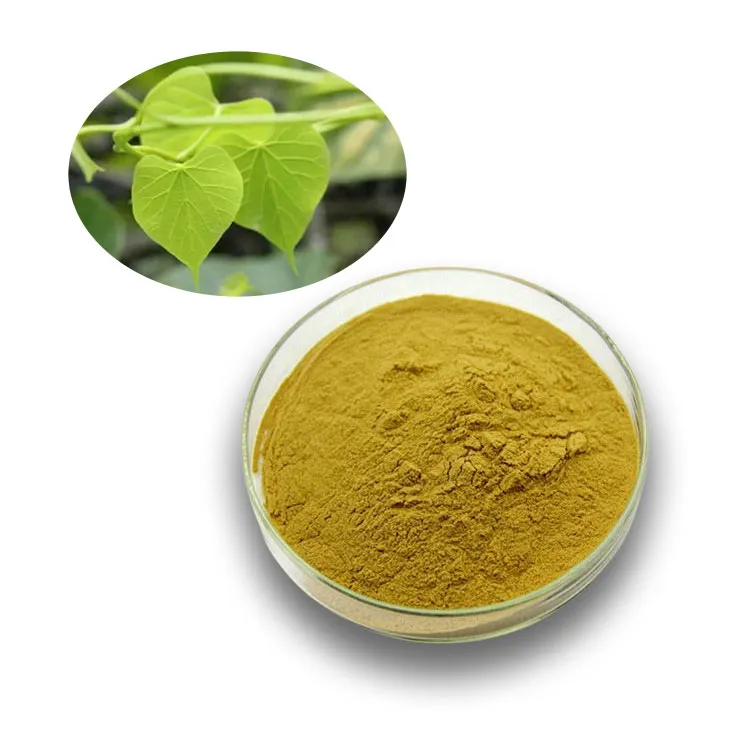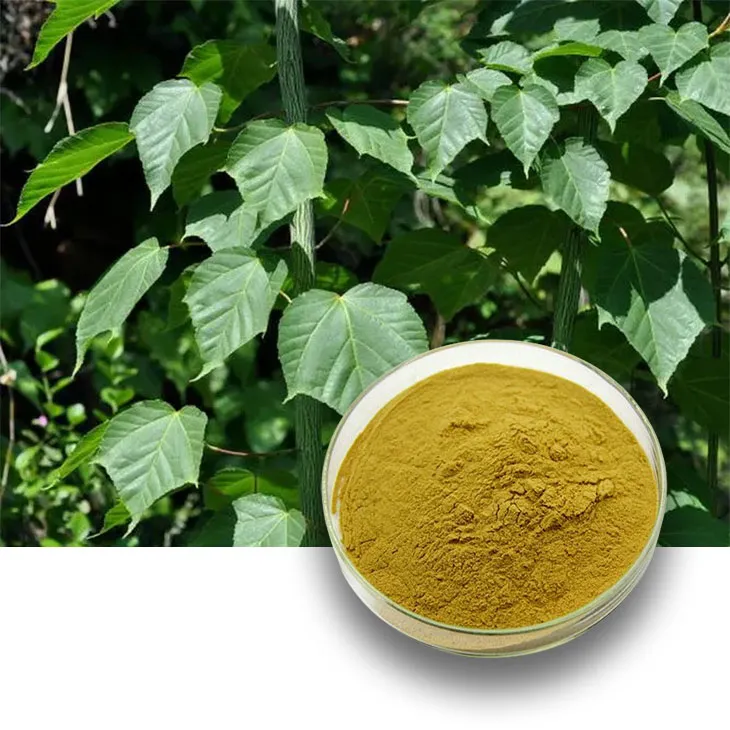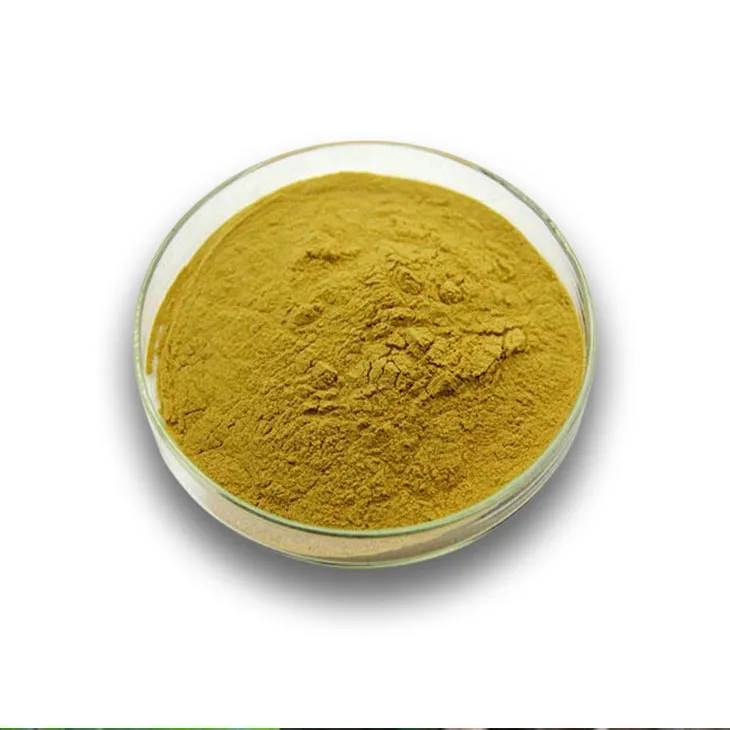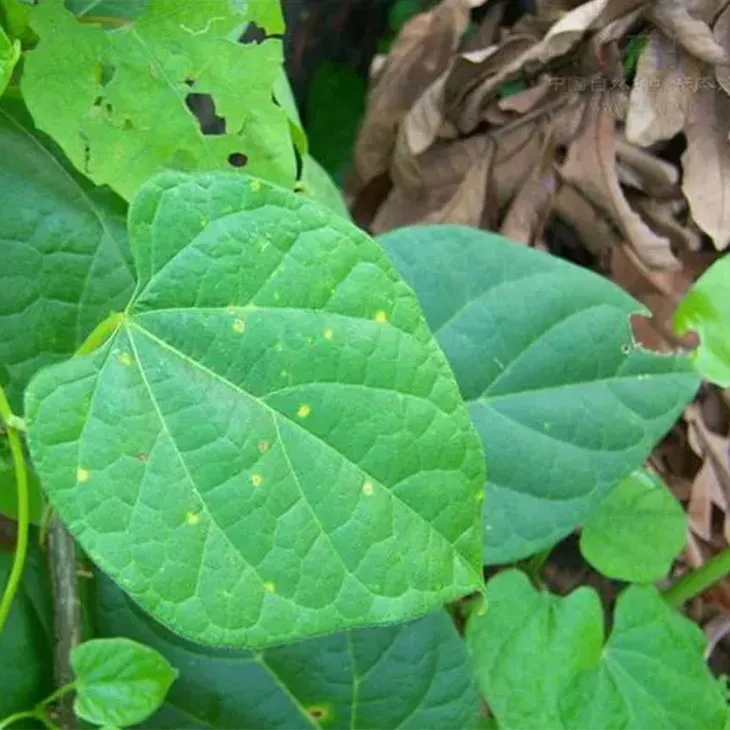- 0086-571-85302990
- sales@greenskybio.com
Carbon Dioxide Extract of Tinospora cordifolia Extract.
2024-12-11

Introduction to Tinospora cordifolia
Tinospora cordifolia, a plant with a long - standing reputation in traditional medicine systems across diverse cultures. It has been used for centuries in Ayurvedic medicine in India, as well as in other traditional medical practices in Southeast Asia. The plant is known for its various medicinal properties, which have been passed down through generations.

The Carbon Dioxide Extraction Process
The carbon dioxide extraction method used to obtain the extract of Tinospora cordifolia is a significant advancement. This process is considered green and efficient. Carbon dioxide, in its supercritical state, acts as an excellent solvent. It can selectively extract the bioactive substances from the plant material without leaving behind harmful residues. This is in contrast to some traditional extraction methods that may involve the use of organic solvents which can be toxic and difficult to remove completely.
The supercritical carbon dioxide has the ability to penetrate the plant cells and dissolve the desired components. As the pressure is released, the carbon dioxide reverts to its gaseous state, leaving behind a concentrated extract of Tinospora cordifolia. This extract contains a rich blend of bioactive compounds that are of great interest to researchers and the health - related industries.

Bioactive Compounds in the Extract
The carbon dioxide extract of Tinospora cordifolia is a concentrated source of numerous bioactive substances. One of the important groups of compounds present in the extract is alkaloids. These alkaloids play a crucial role in the potential medicinal applications of the extract.
There are also other bioactive components such as flavonoids, terpenoids, and phenolic compounds. Flavonoids are known for their antioxidant properties, which can help in protecting the body against oxidative stress. Terpenoids have a wide range of biological activities, including anti - inflammatory and antimicrobial effects. Phenolic compounds are also important for their antioxidant and anti - inflammatory activities.

Potential Health Benefits
Anti - Inflammatory Effects
One of the most promising aspects of the carbon dioxide extract of Tinospora cordifolia is its anti - inflammatory effect. Inflammation is a key factor in many diseases, including arthritis, heart disease, and certain autoimmune disorders. Studies have shown that the extract can modulate the body's inflammatory response. It may do this by interfering with the production of inflammatory mediators such as cytokines and prostaglandins.
For example, in animal models of arthritis, treatment with the extract has shown a reduction in joint swelling and pain. This indicates that it could potentially be a valuable treatment option for human patients with inflammatory joint diseases.
Antimicrobial Activity
The presence of alkaloids and other bioactive compounds in the extract gives it potential antimicrobial activity. It has been tested against a variety of bacteria, fungi, and viruses.
- Against bacteria, the extract has shown inhibitory effects on some common pathogenic bacteria such as Staphylococcus aureus and Escherichia coli. This could be useful in the development of new antibiotics or as an adjunct treatment for bacterial infections.
- In the case of fungi, it has also demonstrated antifungal activity against certain species like Candida albicans. This is important as fungal infections can be difficult to treat, especially in immunocompromised patients.
- Regarding viruses, although research is still in the early stages, there are indications that the extract may have some antiviral properties. For instance, it may interfere with the replication cycle of certain viruses.
Other Potential Health Benefits
Besides anti - inflammatory and antimicrobial effects, the carbon dioxide extract of Tinospora cordifolia may have other health - promoting properties.
- It may have antioxidant effects, which can help in preventing cellular damage caused by free radicals. This could potentially be beneficial in reducing the risk of chronic diseases such as cancer and neurodegenerative disorders.
- There are also suggestions that the extract could have immunomodulatory effects. It may help in strengthening the immune system by enhancing the function of immune cells such as lymphocytes and macrophages.

Research on Molecular Mechanisms
From a scientific perspective, understanding the molecular mechanisms of how the carbon dioxide extract of Tinospora cordifolia exerts its effects is crucial. Researchers are using various techniques to explore these mechanisms.
- One approach is through the study of gene expression. By analyzing how the extract affects the expression of genes related to inflammation, immunity, and other biological processes, researchers can gain insights into its mode of action.
- Another method is the investigation of protein - protein interactions. The extract may interact with certain proteins in the body, either directly or indirectly, to bring about its effects. Understanding these interactions can help in the development of more targeted therapies.
- Cell - based assays are also being used. These assays involve exposing cells to the extract and observing the changes in cell behavior, such as cell proliferation, apoptosis, and differentiation. Such studies can provide valuable information about the extract's effects at the cellular level.
Commercial Applications
Herbal Medicines
The carbon dioxide extract of Tinospora cordifolia has great potential as an ingredient in herbal medicines. Its various health - promoting properties make it a valuable addition to traditional herbal formulations.
- It can be used in the development of remedies for inflammatory conditions, such as anti - arthritis herbal tablets or capsules.
- For treating microbial infections, it could be incorporated into herbal preparations for skin infections or respiratory tract infections.
Functional Foods
In the area of functional foods, the extract can be used to enhance the nutritional and health - promoting value of food products.
- It could be added to dietary supplements, such as antioxidant - rich capsules or tablets. These supplements can be targeted at consumers who are interested in maintaining good health and preventing chronic diseases.
- The extract may also be incorporated into functional beverages, like herbal teas or energy drinks. This can provide consumers with a convenient way to obtain the potential health benefits of the extract.
High - End Cosmetics
The extract's antioxidant, anti - inflammatory, and antimicrobial properties make it suitable for use in high - end cosmetics.
- In skin - care products, it can be used in creams, lotions, and serums. For example, it may help in reducing skin inflammation, preventing acne, and protecting the skin from oxidative damage.
- In hair - care products, it could potentially be added to shampoos and conditioners to promote healthy hair growth and prevent scalp infections.
Challenges and Future Directions
Despite the many potential benefits of the carbon dioxide extract of Tinospora cordifolia, there are also some challenges that need to be addressed.
- One challenge is the standardization of the extract. Since the composition of the extract may vary depending on factors such as the source of the plant material and the extraction conditions, it is important to develop standard methods for its production and quality control.
- Another challenge is the need for more in - depth clinical trials. Although there have been some promising pre - clinical studies, more human - based clinical trials are required to confirm the safety and efficacy of the extract for various applications.
- There is also a need to further explore the long - term effects of the extract. This is especially important when considering its use in food and cosmetic products, as well as in long - term medical treatments.
In the future, research should focus on addressing these challenges. This will help in unlocking the full potential of the carbon dioxide extract of Tinospora cordifolia in various fields, from medicine to the food and cosmetic industries.
FAQ:
What are the main bioactive substances in the carbon dioxide extract of Tinospora cordifolia?
The carbon dioxide extract of Tinospora cordifolia contains various bioactive substances. One of the important ones is alkaloids. These alkaloids contribute to its potential in treating microbial infections. There may also be other compounds such as flavonoids and phenolic acids which are often associated with anti - inflammatory and antioxidant properties, but further research is needed to fully identify and characterize all the bioactive substances.
How does the carbon dioxide extraction process work for Tinospora cordifolia?
The carbon dioxide extraction process involves using carbon dioxide in a supercritical state. In this state, carbon dioxide has properties between a gas and a liquid. It can effectively penetrate the plant material of Tinospora cordifolia. The supercritical carbon dioxide acts as a solvent, selectively dissolving the desired bioactive substances. Then, by changing the pressure and temperature, the carbon dioxide can be easily removed, leaving behind the concentrated extract of the plant.
What evidence is there for the anti - inflammatory effects of the Tinospora cordifolia carbon dioxide extract?
There have been in - vitro and in - vivo studies. In - vitro studies have shown that the extract can inhibit the production of certain inflammatory mediators such as cytokines. In - vivo studies on animal models with inflammatory disorders have also demonstrated a reduction in symptoms associated with inflammation when treated with the extract. However, more extensive clinical trials are required to confirm these effects in humans.
Can the carbon dioxide extract of Tinospora cordifolia be used safely in cosmetics?
Before it can be used safely in cosmetics, several factors need to be considered. While the traditional use of Tinospora cordifolia in medicine gives some indication of its safety, specific safety tests for the carbon dioxide extract are necessary. These include tests for skin irritation, sensitization, and potential toxicity. If these tests show no adverse effects, and regulatory requirements are met, it has the potential to be a valuable ingredient in high - end cosmetics.
What are the challenges in commercializing the carbon dioxide extract of Tinospora cordifolia?
One of the main challenges is regulatory compliance. Different regions have different regulations regarding herbal extracts in products such as herbal medicines, functional foods, and cosmetics. Another challenge is standardization. Ensuring a consistent quality of the extract across different batches is difficult due to variations in the source plant material. Additionally, there may be competition from synthetic drugs or other natural products, which requires effective marketing strategies to promote the unique benefits of the Tinospora cordifolia carbon dioxide extract.
Related literature
- Carbon Dioxide Extraction of Bioactive Compounds from Medicinal Plants: A Review"
- "Tinospora cordifolia: Traditional Uses and Modern Pharmacological Perspectives"
- "Bioactive Substances in Plant Extracts: Extraction and Characterization"
- ▶ Hesperidin
- ▶ Citrus Bioflavonoids
- ▶ Plant Extract
- ▶ lycopene
- ▶ Diosmin
- ▶ Grape seed extract
- ▶ Sea buckthorn Juice Powder
- ▶ Fruit Juice Powder
- ▶ Hops Extract
- ▶ Artichoke Extract
- ▶ Mushroom extract
- ▶ Astaxanthin
- ▶ Green Tea Extract
- ▶ Curcumin
- ▶ Horse Chestnut Extract
- ▶ Other Product
- ▶ Boswellia Serrata Extract
- ▶ Resveratrol
- ▶ Marigold Extract
- ▶ Grape Leaf Extract
- ▶ New Product
- ▶ Aminolevulinic acid
- ▶ Cranberry Extract
- ▶ Red Yeast Rice
- ▶ Red Wine Extract
-
Giant Knotweed Extract
2024-12-11
-
Nettle Root Extract
2024-12-11
-
Pine bark Extract Powder
2024-12-11
-
Coconut Water Powder
2024-12-11
-
Apricot Powder
2024-12-11
-
Pueraria Lobata Extract
2024-12-11
-
Bamboo Leaf extract
2024-12-11
-
Yam Extract
2024-12-11
-
Senna Leaf Extract
2024-12-11
-
White Peony Extract
2024-12-11





















